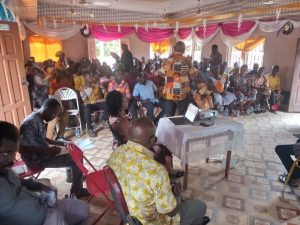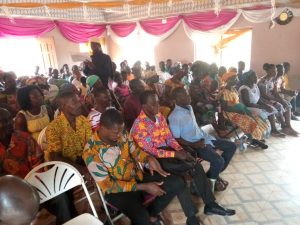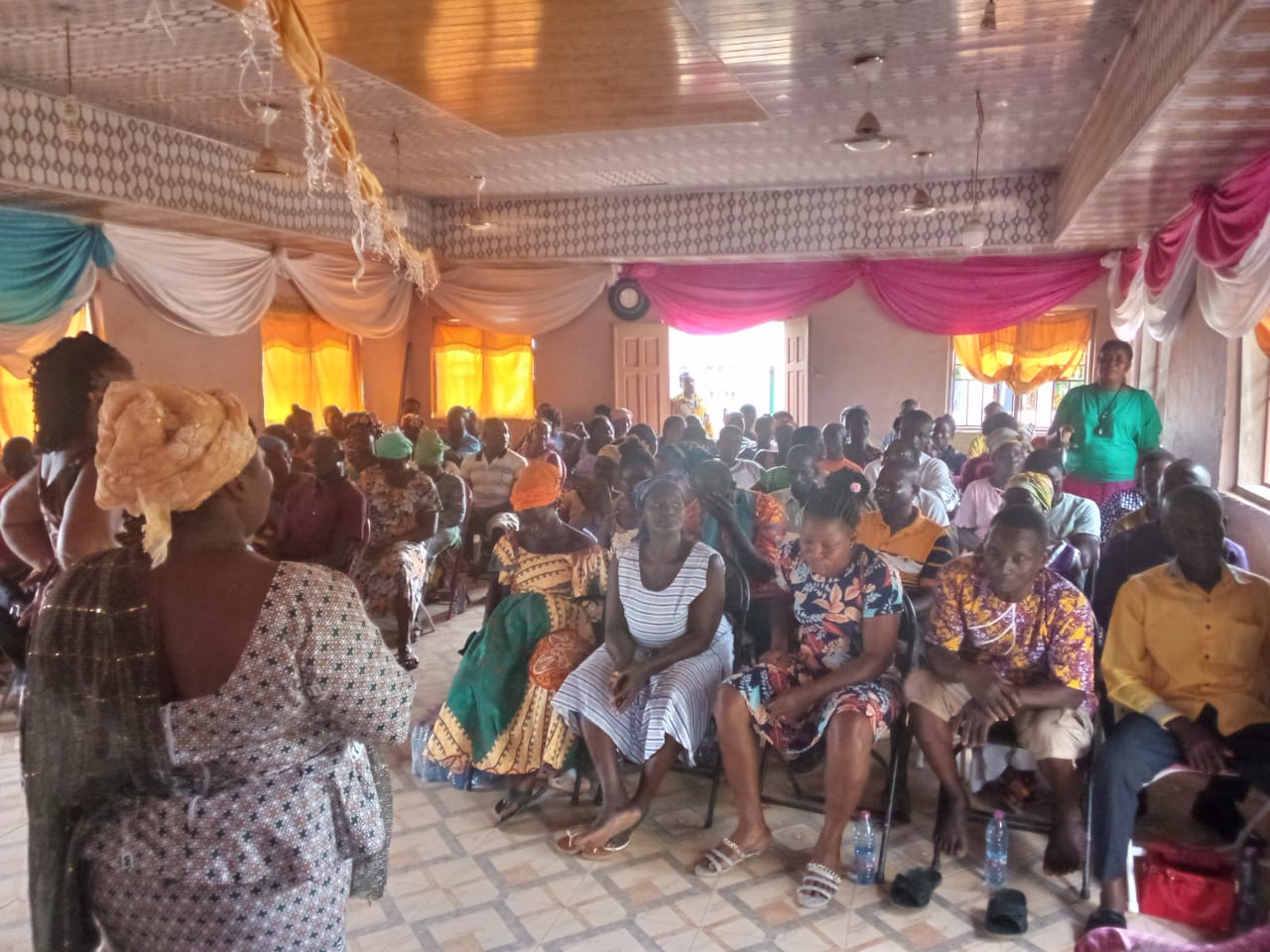Over 100 Members Of Affected Mining Communities In Upper Denkyira West Receive Paralegal Training From Wacam
Over 100 representatives of four mining affected communities in the Upper Denkyira West District have received paralegal training to help them deal with rights violations.
The four communities, which are being affected by the operations of Perseus Mining Ghana Company Limited (PMGL), are Ayanfuri, Denkyira Breman, Akrofuom and Fobinso—all in the Upper Denkyira West of the Central Region.
The training aimed at building the capacity of the participants on the Minerals and Mining Act, 2006, Act 703.

The attendees were also sensitised on their fundamental human rights and how to protect them, and deal with rights violations by the mining company in their communities.
The workshop held in Denkyira Breman on Wednesday, July 18, 2023, was organised by Wacam, a community based human rights and environmental mining advocacy Non-Governmental Organisation (NGO), with support from The Fund for Global Human Rights (TFGHR).
Leading the discussion in a presentation dubbed; ‘Review of the Minerals and Mining Act, Act 703, the Associate Executive Director of Wacam, Mrs Hannah Owusu-Koranteng, bemoaned that in spite of Ghana’s rich mineral resources, extraction of minerals including gold, diamond in commercial quantities has not inured to its benefit.
She explained that Ghana’s inability to optimise significant benefit from its minerals was due to the lack of ‘good and strong policies’ and a legal framework in the extractive sector.
This could be attributed to the fact that the country [Ghana] in the period of the third jungle boom adopted liberal policies with the aim of attracting foreign direct investments in the mining sector,” she said.
According to her, beyond the argument that mining has created job opportunities and brought some level of development to the country, it has been plagued by a huge cost to Ghana.
She cited polluted water sources and bodies, air pollution, loss of land-based economic activities, occupational health and safety issues, and widespread human rights abuses in mining communities as some of the cost of mining to Ghana.
The Executive Director of Centre for Public Interest Law (CEPIL), Lawyer Augustine Niber, took the participants through what he stated were gaps in some sections of the Minerals and Mining Act, 2006, Act 703.
He underscored that the Minerals and Mining Act was made to suit foreign investors and not Ghana.
…and this is the reason we as a country are not reaping the full benefits of mining,” he explained.

He said, for instance, section 3 of the Mining Act that talks about land available for application for mineral right is not in conformity with provisions in the National Land Policy.
Again, Lawyer Niber advocated that section 17 of the mining law which provides water rights to mining companies be scrapped, stressing that it is a recipe for the wanton destruction and blanket pollution of water bodies by mining companies.
…because of this provision about 250 water bodies in the Obuasi and Tarkwa areas are polluted with heavy metals,” he revealed.
He pointed out that instead of section 17, provisions should be put in place to protect the country’s water bodies, lamenting that Ghana was gradually becoming a water stressed nation.”
Furthermore, the executive director of CEPIL asked that sections 19, 20, 21, which deal with public access to information on mining related activities be reviewed, adding that Ghanaians have a right to information.
He said these provisions clearly restrict public access to information relating to mining operations.
Similarly, the fee requirement must be scrapped, insisting that “environmental audit reports, contracts and agreements with government and any other report that is of public interest should be provided to the public,” he added.
On the subject of compensation, Lawyer Niber said after a land owner or a lawful occupier has consented to a compensation agreement, the money should be paid first before the mining company can have access to the land.
You have every right to stop the company from entering into your land if compensation has not been paid,” he told the participants.
He also maintained that farmers were not obliged to accept any compensation agreement determined by a committee or the company, stating that “you must be involved in the compensation process.”
According to him, in the wake of any compensation agreements, the land owner/lawful occupier was required to seek redress in a high court.
Also don’t sign a blank document and any document you do not understand with respect to compensation,” he cautioned.

